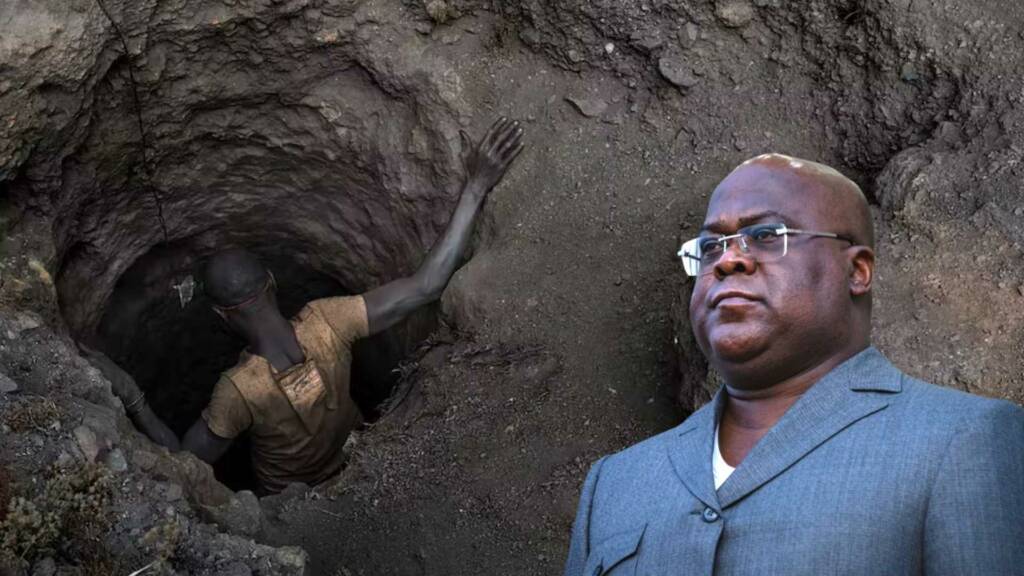Previously, in the first part, we discussed in great length about the rise of the Canadian mine company Ivanhoe Mines and the growing influence of the multinational company in the power corridors of the Democratic Republic of Congo. You can read the article here.
The multinational Canadian corporation has amassed wealth by collaborating with dishonest DRC authorities. However, there have been many tyrants and villains who, may appear invincible for a while, ultimately fail. Ivanhoe Mines has witnessed the same experience. The Ivanhoe empire’s wickedness has been unveiled, and its fall has begun.
RCMP and Ivanhoe Mines
A few days ago, The RCMP has searched the Vancouver office of Ivanhoe Mines Ltd. to seek information on $2.7-million in bank transfers from Ivanhoe to a Swiss bank account in connection with contracts for its Congolese mining operations.
The RCMP obtained the search warrant after saying it had reasonable grounds to believe that Ivanhoe Mines violated Canada’s Criminal Code and Corruption of Foreign Public Officials Act between 2014 and 2018, according to a brief disclosure by Ivanhoe in an annual information form.
British Columbia court documents in the case – obtained by The Sentry, a U.S.-based investigative organization contained a six-page list of documents and computer equipment that the RCMP was authorized to seize from Ivanhoe’s office. Some of the documents authorized for seizure were related to three bank transfers from Ivanhoe Mines to the Swiss bank account of a company called Stucky Technologies from 2015 to 2018.
Ivanhoe’s stock price dropped by about 11 per cent on the TSE after reports came out about the RCMP search.
The RCMP search is an example of how Ivanhoe Mines is increasingly under scrutiny for its operations in Congo.
Whatever happens in the Canadian case, the facts made public by this investigation perfectly capture the kinds of situations in which a corporate actor might be tempted to provide illegal inducements: a local statute threatens to overturn late-day discoveries that could be used to attract significant investments, while local officials in a high-risk jurisdiction appear to be able to make such issues go away illegally. Meanwhile, an insider with significant connections received a substantial cut in a deal that the corporation may have thought no one would notice. The people in one of the world’s poorest countries lost once more as business goes on as usual.
DRC’s misfortune
When Laurent-Désiré Kabila’s fledgling government made a deal with Ivanhoe Mines in 1997, it claimed it was doing so to open up the vast territory in question for developing the DRC’s enormous mineral resources “with the aim of improving the collective’s social and economic conditions in the shortest time.” Twenty-five years later, the region that Ivanhoe brags about having “excellent” and “tremendous” potential has yet to be developed and probably won’t be for many more years. Ivanhoe Mines seems to be able to maintain these titles indefinitely through a variety of strategies, starting projects whenever it sees fit.
Nations all around the world have created regulations that encourage immediate production of mineral finds and prevent squatting on land until commodities prices are more to the explorer’s liking. Given that the process that takes investors from looking for hidden resources to collecting money from the sale of finished goods is already sluggish and drawn-out by nature, the need to prevent stalling is more urgent. While it may be debatable whether promoting such rapid development is always in the best interests of sovereign states—after all, it might encourage miners to sell their goods when demand is low or drive down prices through an oversupply—the “use it or lose it” maxim is universal and well-established.
It is obvious that comparable goals have been on the thoughts of Congolese legislators for a long time. In order to tip the scales slightly more in favour of a nation and its citizens fighting against international looting, Congolese policymakers repeatedly tightened restrictions on the allowable surface area and time periods that could be granted to mining companies for mineral exploration between 1981 and 2018. Only when organisations like Ivanhoe Mines and those who support them are held accountable will such balance be restored. The zeal with which Ivanhoe described its Western Foreland discovery reveals its confidence in being able to hold onto property over which it had no legal authority.
With stronger, more transparent compliance of Congolese law and more rigorous due diligence of corporate behaviour by Congolese and international authorities, foreign investment capital will discover that the road to success lies not in breaking the DRC’s rules but in respecting them—and in placing sovereign control of the DRC’s riches in the public’s hands and not the powerful few.
https://www.youtube.com/watch?v=rJJqXDqivbc
